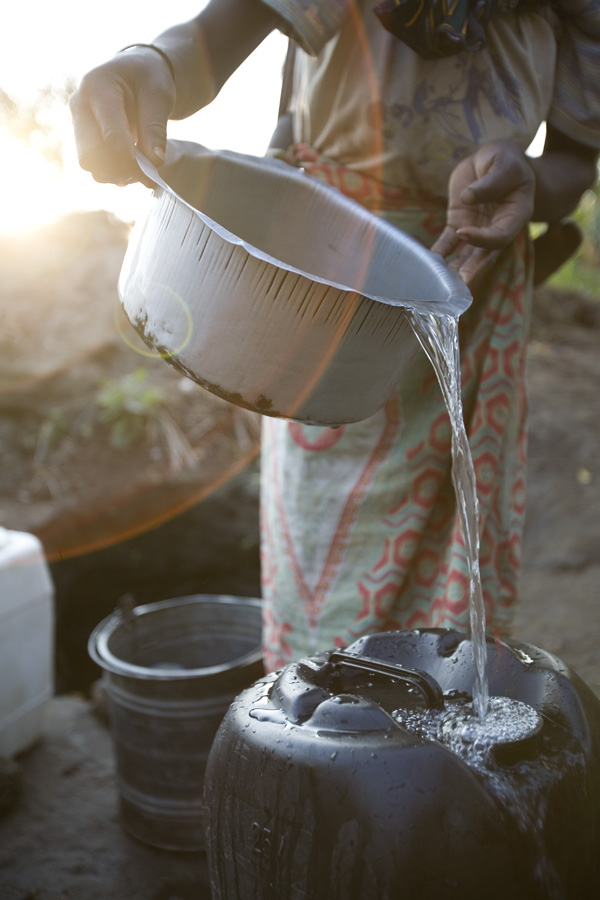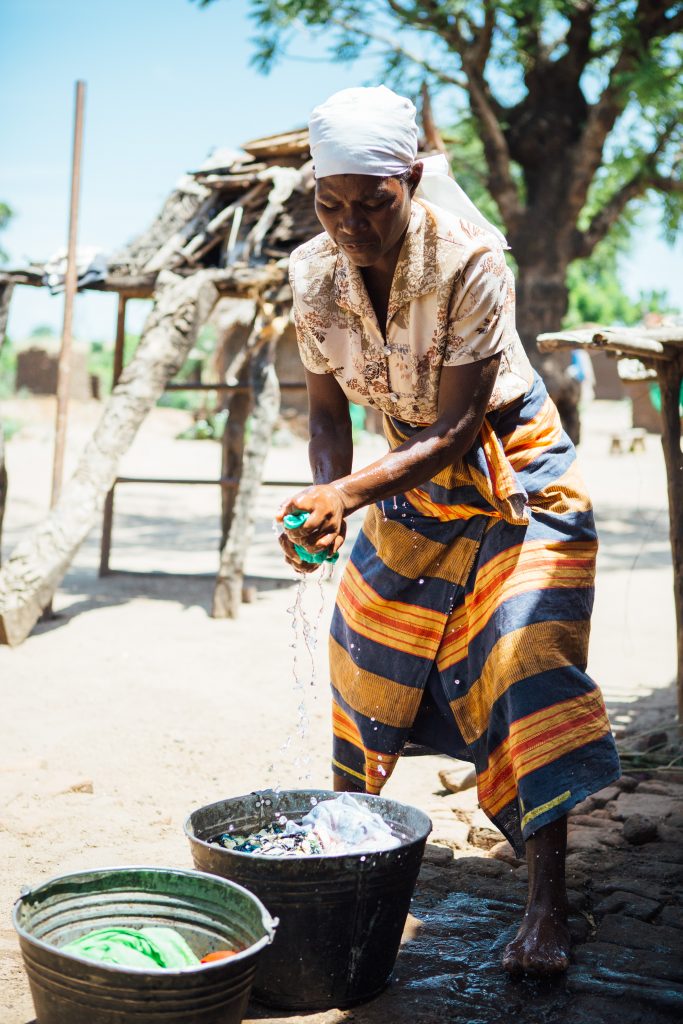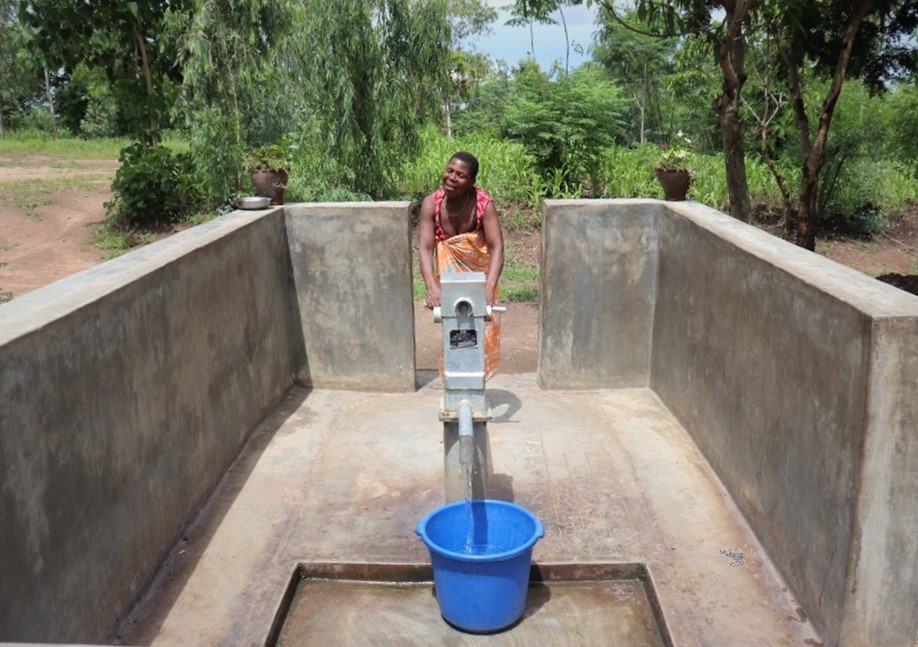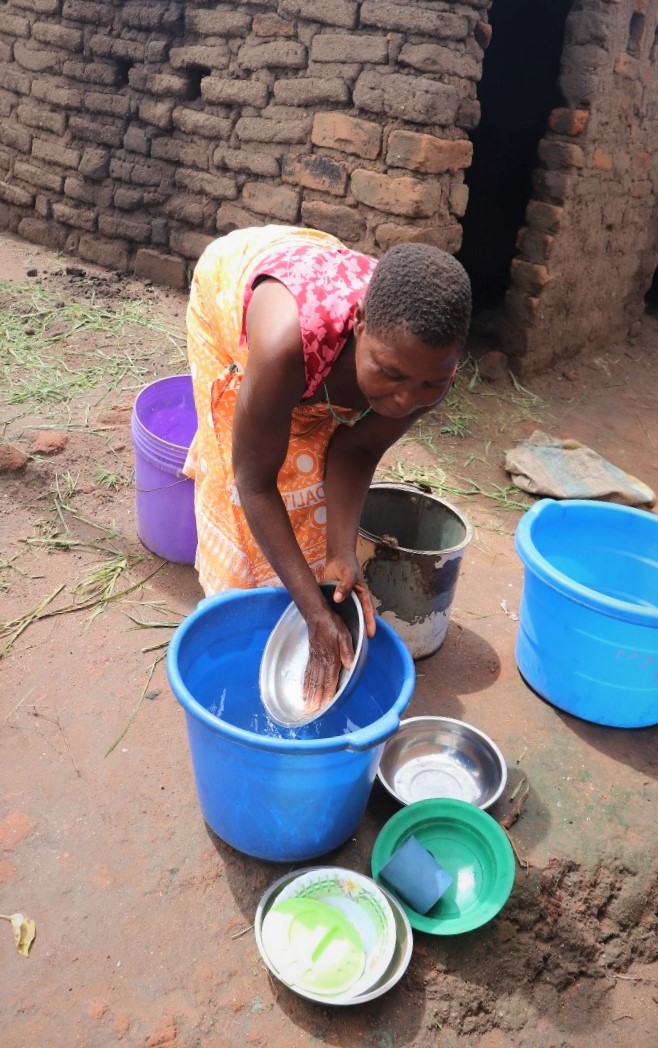Situated between hills, this hard-to-reach village is in the Chiradzulu District in southern Malawi. A mild, cool climate attracted settlers from nearby Mozambique in the early ‘90s who were in search of land for farming. However, this pursuit of greener pasture led to a major problem – lack of water.
A low water table around Makalani means that significant mechanical effort is required for the water to be accessed. Equipment, effort, and technical expertise that are all costly.
The residents of the area are primarily farmers faced with low economic standards of living. When paired with the district government’s financial hardships, there was no funding for water systems.
The people resorted to drawing water from unprotected shallow wells, where the risk of exposure to waterborne diseases was high. Women often starting walking to fetch water before sunrise, and in the dry season they would walk over three kilometers, often with babies on their backs. After these treks to collect water, women and girls were left with little time to complete household chores, attend school, work, or even rest.
"I used to wake up early in the morning around 3 a.m. to go fetch water from the well," explains Edina, a 55-year-old mother of seven, who has lived in Makalani since she was born. All too familiar with the challenges of finding water, she says, "As a woman, I had a burden, as per our tradition that we have the sole responsibility to fetch water for the family. As such, I had no time to finish up household chores. Farming was also compromised as I used to spend most of the day walking in search of water."
Insufficient water for handwashing, cleaning, and bathing meant an increase in illnesses. For students, their illnesses meant missing school, accelerating the levels of illiteracy for the community. And without enough water available to create bricks, families could not construct latrines. Without access to safe water, the health – and potential for progress – in Makalani suffered.
In 2020, an assessment by Water For People highlighted Makalani’s need for water. Water For People collaborated with the village and the Chiradzulu district council to drill a borehole. This new water system means over 300 people in the village have nearby access to safe, reliable water.
Edina shares what this progress has meant for her.
"Now I can wake up any time since water is in our vicinity. My family is happy since they are consuming clean, safe water and can bathe two times a day. The water from the borehole has a good smell and taste. I can cook with it and clean my utensils."


But the changes for Edina and others in the village do not stop there.
"I am expecting more harvest this year from my garden because I have now spent more time in the garden than searching for drinking water. I have enough time to work on a small business to support my family. Within 10 minutes, I can go to the borehole and come back home."
Water For People’s focus on sustainability meant additional support for the people of Makalani to ensure long-term access to water. A committee was established and trained by Water For People, with five men and five women representing the village. They lead the operation, maintenance, and oversight of the new water point and promote hygiene education.
Leah is one of these committee members. A 52-year-old mother of six, she sees the transformation in Makalani.
"Now people can create bricks using the water from the borehole in order to construct a pit latrine for improved sanitation. What is hygiene without water? As committee members, we have seen a decrease in diarrhea cases which is improving wellbeing and dignity amongst households."
Now the village is seeing more latrine construction and handwashing facilities. Health and hygiene are improving. Farming and gardening is possible thanks to more time. Students are staying in school, and opportunities are expanding.
Welcome to Makalani.


Edina using the community’s new handpump and washing dishes in her home.
